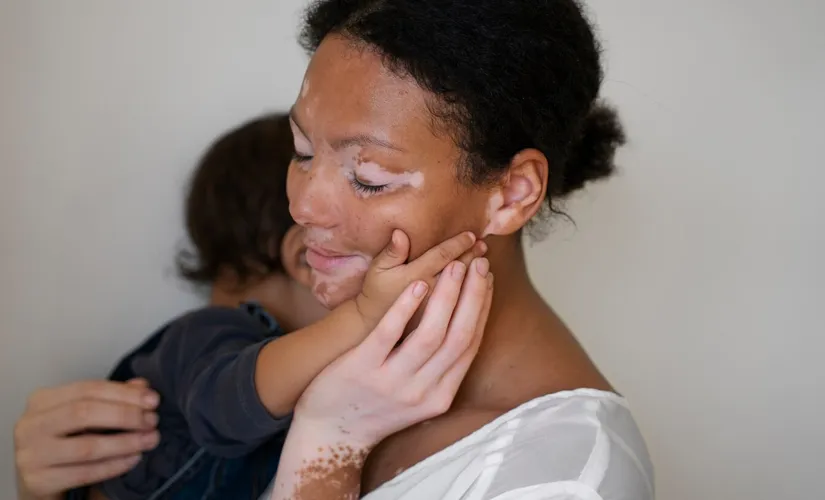
Vitiligo is an autoimmune disease that appears as white patches on the skin. It is also popularly known as “ala disease”. There is no internal organ involvement, it only affects the skin. It may be associated with other autoimmune diseases (diabetes, Hashimato, vitamin B12 deficiency etc.) Some parts of the body are more frequently affected; face, hands, especially fingers, genital area. It can spread to the whole body. It is not contagious. Stress is the main factor in triggering and increasing.
Vitiligo is a disease that affects people socially and psychologically. There are many methods that can be applied for vitiligo treatment. First of all, the colour difference between normal skin and vitiligo skin should be protected from the sun so that the normal skin does not darken and the sensitive vitiligo skin should be protected from the sun to prevent burns and skin cancer.
At first, treatment should be started with topical treatment, i.e. creams. Cortisone creams and immunomodulatory creams are frequently used. There are also herbal vitiligo creams containing antioxidant substances.
PUVA treatment is applied in patients with diffuse vitiligo, which is performed with controlled ultraviolet radiation devices. There are also immunosuppressive (suppressing the immune system) and immunomodulatory (suppressing or increasing the power of the immune system) drugs in the treatment. Since these drugs treat by suppressing immunity, they should be used after careful evaluation.
In patients with very common spots, the body colour is equalised by lightening the dark skin areas with the depigmentation method. With this method, the skin colour is equalised by bleaching the whole body. In this case, colour loss is permanent.
In the surgical treatment of vitiligo, the vitiligo area is re-coloured by placing skins taken from another part of the body in the areas where the skin has lost its colour with Punch graft applications. Stem cell transplants can also be performed.
As in every autoimmune disease, nutrition is important in vitiligo. Foods that will increase inflammation in the body (gluten, milk and dairy products, sugar) should not be fed, antioxidant foods should be prioritised. Regular exercise, regular sleep, meditation are important to reduce inflammation in the body.
